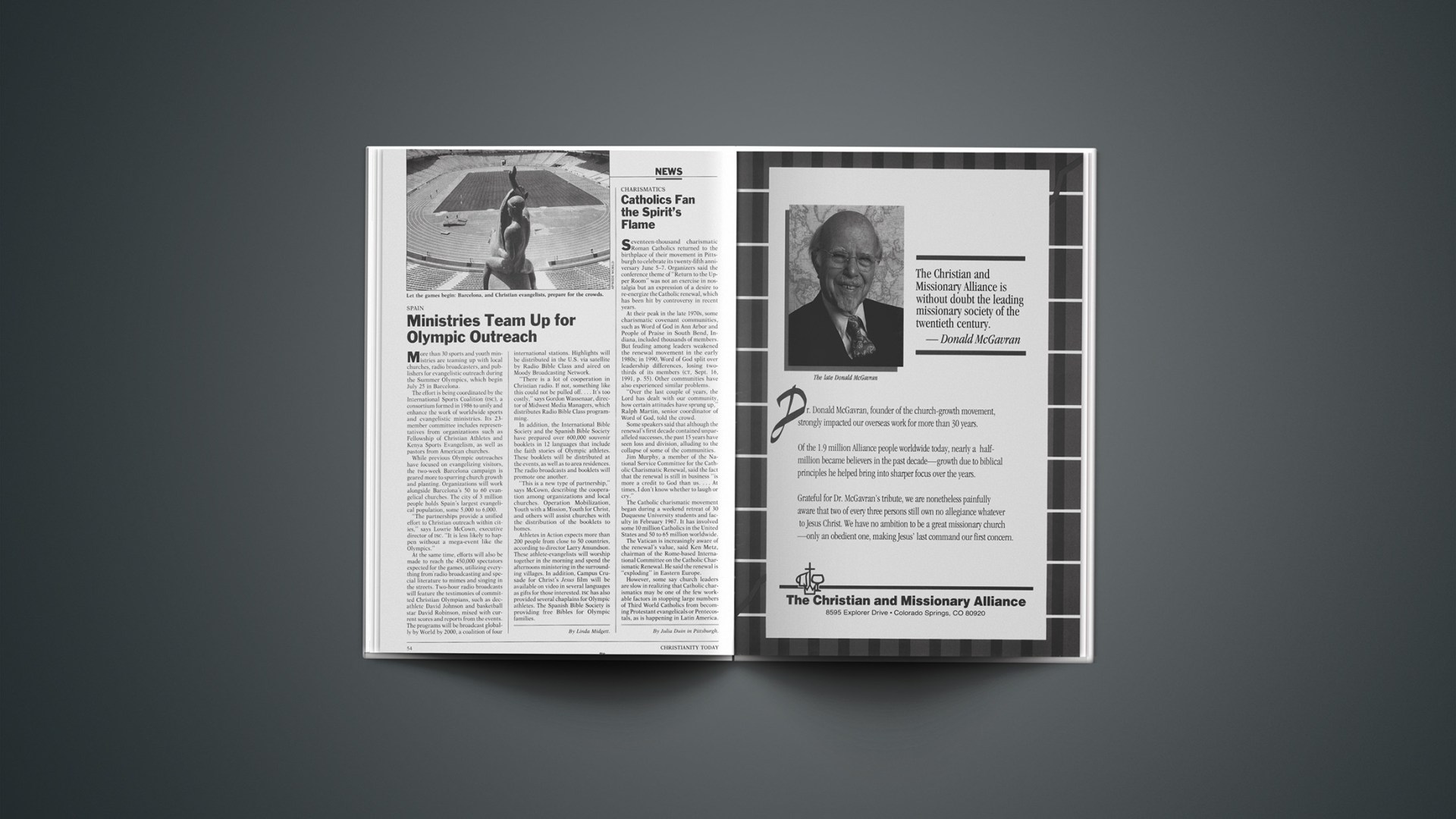Seventeen-thousand charismatic Roman Catholics returned to the birthplace of their movement in Pittsburgh to celebrate its twenty-fifth anniversary June 5–7. Organizers said the conference theme of “Return to the Upper Room” was not an exercise in nostalgia but an expression of a desire to re-energize the Catholic renewal, which has been hit by controversy in recent years.
At their peak in the late 1970s, some charismatic covenant communities, such as Word of God in Ann Arbor and People of Praise in South Bend, Indiana, included thousands of members. But feuding among leaders weakened the renewal movement in the early 1980s; in 1990, Word of God split over leadership differences, losing two-thirds of its members (CT, Sept. 16, 1991, p. 55). Other communities have also experienced similar problems.
“Over the last couple of years, the Lord has dealt with our community, how certain attitudes have sprung up,” Ralph Martin, senior coordinator of Word of God, told the crowd.
Some speakers said that although the renewal’s first decade contained unparalleled successes, the past 15 years have seen loss and division, alluding to the collapse of some of the communities.
Jim Murphy, a member of the National Service Committee for the Catholic Charismatic Renewal, said the fact that the renewal is still in business “is more a credit to God than us.… At times, I don’t know whether to laugh or cry.”
The Catholic charismatic movement began during a weekend retreat of 30 Duquesne University students and faculty in February 1967. It has involved some 10 million Catholics in the United States and 50 to 65 million worldwide.
The Vatican is increasingly aware of the renewal’s value, said Ken Metz, chairman of the Rome-based International Committee on the Catholic Charismatic Renewal. He said the renewal is “exploding” in Eastern Europe.
However, some say church leaders are slow in realizing that Catholic charismatics may be one of the few workable factors in stopping large numbers of Third World Catholics from becoming Protestant evangelicals or Pentecostals, as is happening in Latin America.
By Julia Duin in Pittsburgh










